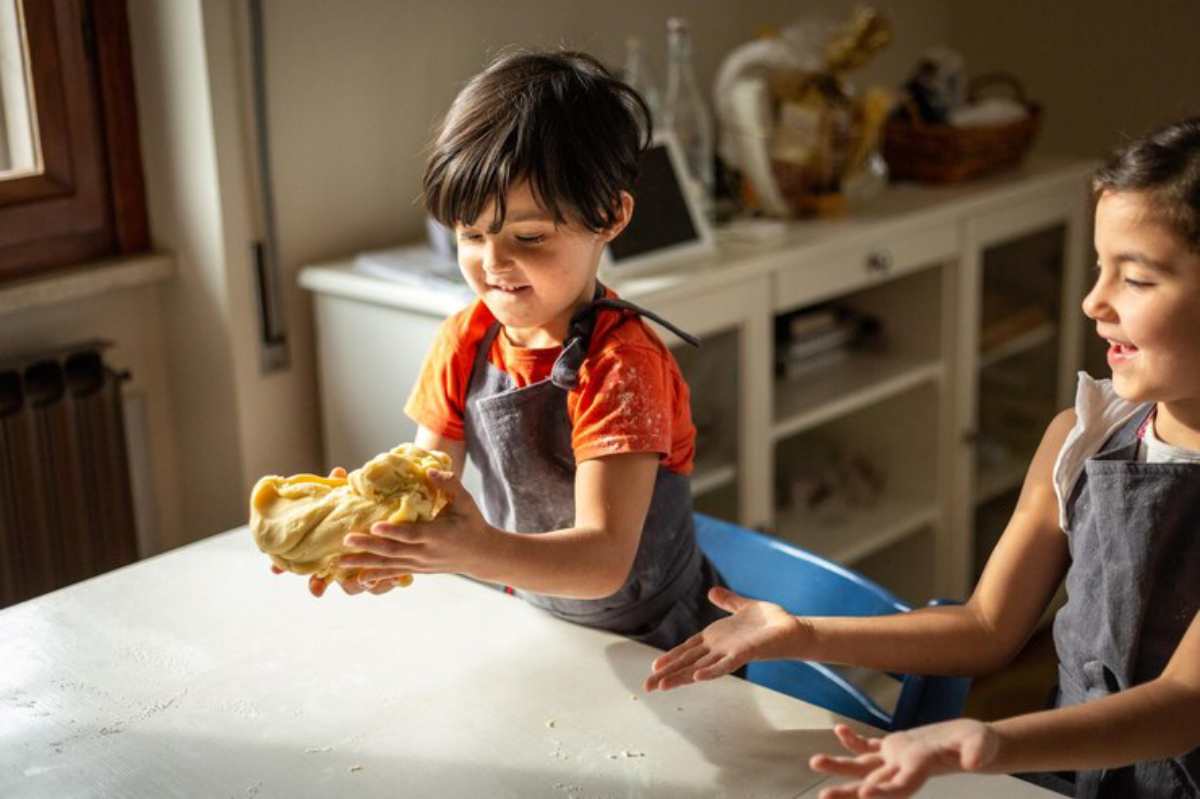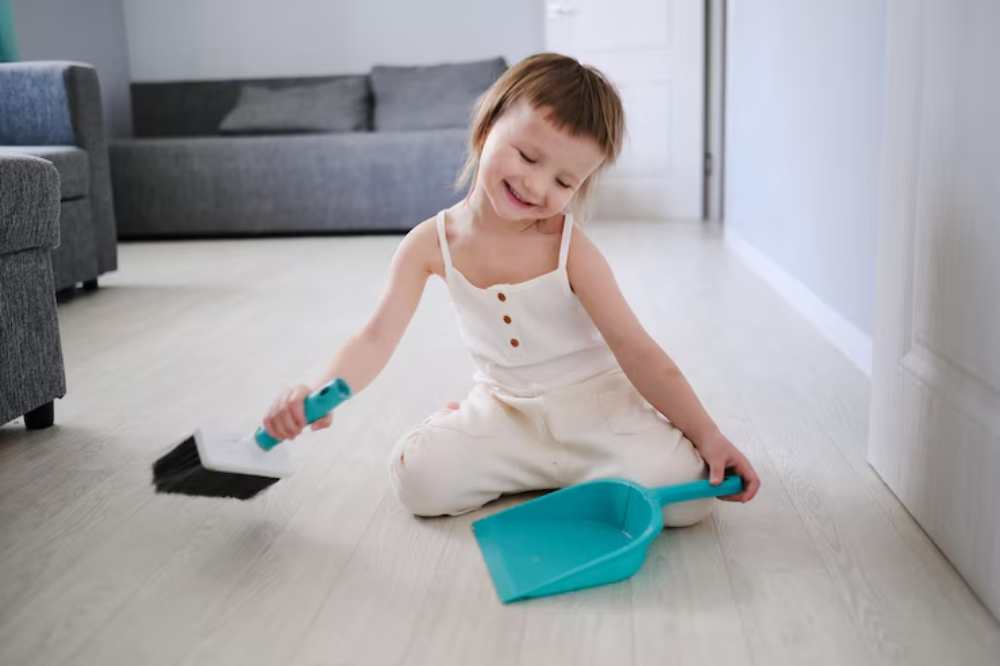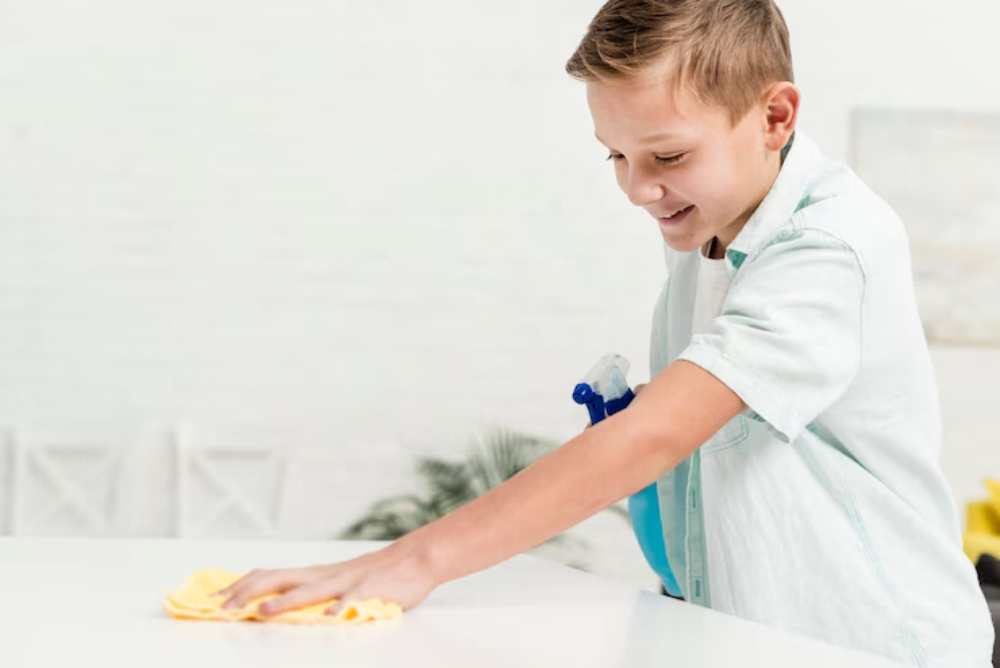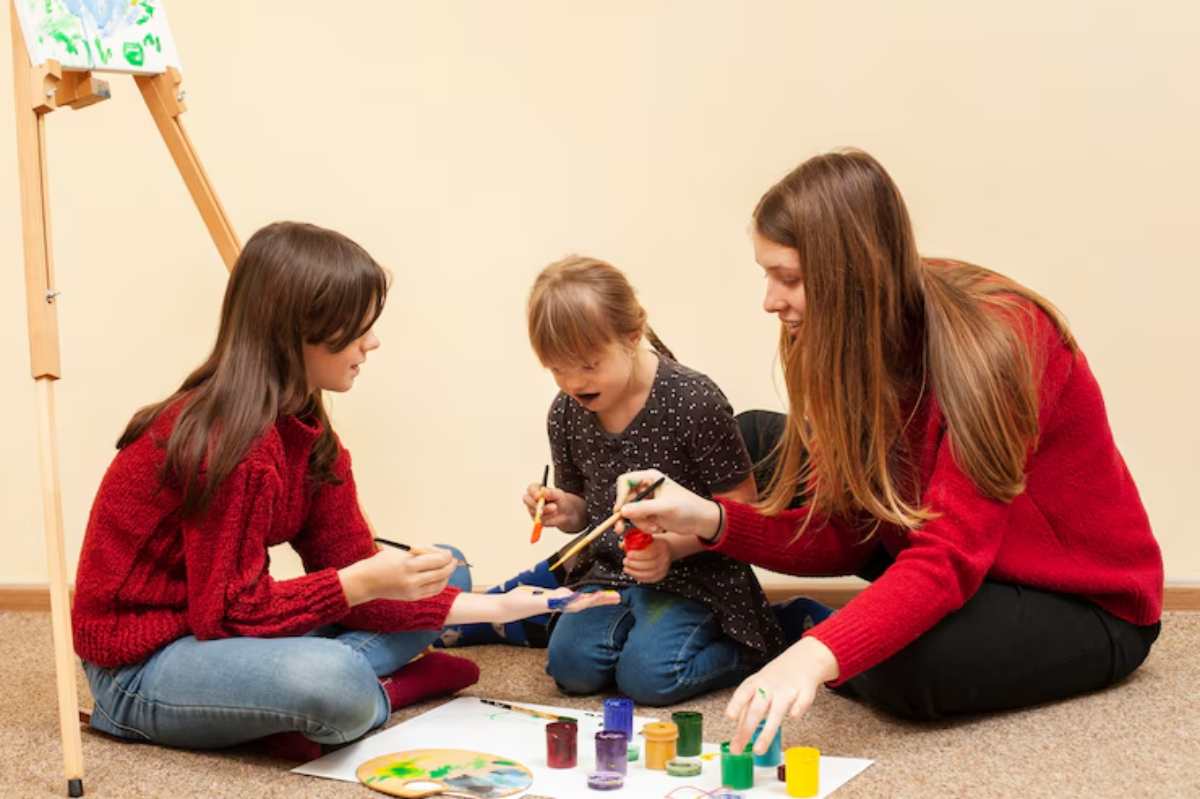
Making Chores Fun and Rewarding for Kids
Making your kids do chores needn’t feel like a daily war. In fact, when done in the right way, chores can be fun, meaningful, and even look forward to. Parents who manage to make tasks fun but mix in some structure with them often find their kids become more cooperative. They also grow independent and take pride in helping at home.
This blog explores real parenting hacks that make your children view chores differently. It does, however, when you include all of the fun, unique and age-appropriate incentives. It helps build life skills and strengthens family bonds.
Why It Matters: The Role of Chores in Child Development
Chores aren’t just about keeping a tidy space. They play a fundamental role in shaping a child’s sense of responsibility and self-worth. Kids who regularly help out at home tend to develop a stronger work ethic, better time management skills, and greater empathy.
From picking up toys to helping with dinner prep, age-appropriate chores lay the groundwork for lifelong habits. They show children that they are capable contributors, not just passive observers in the household.
Kids who help with daily tasks tend to value effort more. They also gain confidence from their achievements and learn the importance of teamwork.
Key Benefits: More Than Just a Clean Room
1. Builds Responsibility and Accountability
When children complete chores consistently, they begin to understand the importance of dependability. Giving them specific tasks and trusting them to finish builds their responsibility.
2. Boosts Self-Esteem
Finishing a task and being recognised for it—whether through a thank-you or a small reward—gives kids a powerful sense of accomplishment. This boost in confidence can carry over into school and social activities.
3. Encourages Teamwork
Household chores teach children that they’re part of a team. It’s a clear, daily reminder that everyone in the home contributes in their own way, regardless of age.
4. Fosters Independence
Giving children structured responsibilities helps them manage tasks and become independent over time.
5. Teaches Time Management
Even simple chores can teach kids to plan, prioritise, and follow routines—skills that are essential in both school and life.
Making Chores Fun: Parenting Tricks That Work

The biggest hurdle is often how chores are introduced and managed. Here are a few time-tested tricks to inject fun into routine tasks:
Create a Chore Chart with Visuals
Use colorful charts or whiteboards to display chores clearly. Let kids decorate their section or use stickers to track progress. This turns chores into a game-like experience.
Turn Tasks into Mini-Challenges
Time-based challenges can turn ordinary tasks into exciting races. For example, “Can you put away all the toys in five minutes?” This approach adds energy and urgency in a positive way.
Use Music to Set the Mood
Create a “chore playlist” of upbeat songs to play during clean-up time. Music makes tasks feel lighter and helps build a consistent rhythm.
Offer Choices
Giving kids the ability to choose between two or three tasks gives them a sense of control. For example, “Would you rather help fold the laundry or water the plants?”
Rotate Chores Weekly

Variety prevents boredom. Rotating chores ensures that no task becomes a dreaded routine and gives kids a chance to try new responsibilities.
Rewards for Kids: Motivation Without Bribery
Rewards work best when they are tied to effort, not perfection. The goal is to reinforce positive behaviour, not create a transactional mindset.
Types of Effective Rewards:
- Verbal Praise: A simple “Great job!” can go a long way when it’s genuine and specific.
- Quality Time: Allow extra bedtime stories, a family movie night, or a special outing as a reward.
- Token Systems: Let kids earn tokens or points that can be exchanged for privileges or small treats.
- Privilege-Based Rewards: Extra playtime, picking a weekend fun activity, or choosing what to have for dinner are low-cost but motivating options.
Avoid using sweets or toys as constant incentives. These can lead to unrealistic expectations and diminish intrinsic motivation over time.
Additional Expert Tips & Common Mistakes to Avoid

Start Young and Keep It Age-Appropriate
Even toddlers can help out in simple ways, like putting toys in a basket or wiping spills. Starting young builds a sense of normalcy around chores.
Be Consistent, Not Rigid
Consistency builds habits, but flexibility keeps things positive. If your child is tired or overwhelmed, it’s okay to modify expectations occasionally.
Avoid Using Chores as Punishment
This can make chores feel like something negative instead of a way to contribute. Instead, keep them framed as family responsibilities.
Don’t Redo Their Work
If your child folds the towels a bit sloppily, resist the urge to refold them. Over-correcting sends the message that their effort isn’t good enough.
Model the Behaviour
Children mimic adults. If they see you completing your tasks with a positive attitude, they’re more likely to mirror that behaviour.
Advanced Insights and Expert Recommendations
Build a Routine, Not a Reaction
Experts suggest adding chores to daily routines. This is better than waiting for messes or bad behaviour to start them. This normalises the habit and reduces resistance.
Combine Responsibility with Reflection
Take a few moments after tasks to reflect with your child. Ask: “How did it feel to finish that?” or “What was the easiest or hardest part?” This builds emotional intelligence and self-awareness.
Avoid the Perfection Trap
Dr. Laura Markham is a clinical psychologist and parenting expert. She advises parents to prioritise effort and consistency over perfection. “The goal isn’t to raise children who clean like adults, but to raise adults who clean because they were encouraged as children.”
Make It Collaborative
Turn chores into bonding moments. Cleaning the kitchen or sorting laundry together lets you bond while being productive.
Building Lifelong Habits Through Daily Tasks
Changing how you approach chores at home can turn them into fun, learning experiences instead of stress. Keeping chores fun and rewarding for children teaches much more than cleanliness. It also develops discipline, resilience and purpose.
Colorful charts, timed games, or even just praise can go a long way to change your child’s perspective of responsibility. A little creativity goes a long way! The habits formed in the home often lay the groundwork for success far beyond it. And the best part? You’re doing it together—one chore at a time.


